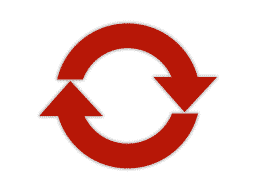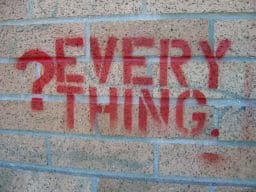Search Engine Optimization, can provide the best ROI for your internet marketing budget. Because it is widely misunderstood and just as commonly misused and abused, there are plenty of misconceptions about SEO that can derail your marketing efforts.

Here are some commonly held beliefs that need some clarification:
“I don’t need on site SEO, just 100 more links”
There is just too much misinformation about SEO out there for you to assume your on site optimization has been done right. Many times we will have a new client tell us it is all taken care of, then we discover their pages are keyword stuffed, title tags are too long or duplicated, no meta descriptions exist, all the internal links all say “click here” instead of something useful, content is duplicated elsewhere in the site or copied from another site, or pages are cloaked or hidden in an attempt to trick the search engines.
Sometimes, there has even been a long term SEO campaign, but the previous SEO either didn’t know what they were doing, or did not do anything at all. This is much more common than you might think. We see a lot of sites that have been around for a while, and worked with a provider for a year or two, yet there has been little or no actual optimization of the site – not even the most basic things!
Another variation of this is the idea that some webmasters have that on site optimization is not necessary and all you need is lots and lots of backlinks. You have figured out how many links your competitor has, and it is only a matter of getting more than them, right? Nope – if it was that easy, anybody with some time could make a totally crappy site rank #1 for everything and nobody would ever want to use search engines.
While inbound links to your site are one of the most important things that will help your website rank better, quality is becoming increasingly important to Google, links are becoming less important and social signals (Likes, +1’s, Tweets, etc) are becoming more important. Make sure you are creating good quality content, your site is well optimized, and make it easy for readers to like your site.
“My web designer already optimized my website”
Web designers and developers often don’t know or don’t care what is important to search engines. If the site looks good and all the buttons work, then it is all good as far as they are concerned. There are many web designers who know SEO, but they are kind of rare. Unfortunately, most web design classes teach the software and visual design skills, but don’t bother with optimization best practices. I recently had a web design instructor tell me that he doesn’t teach SEO because it “has nothing to do with web development and it doesn’t work”! Um, yeah. Right. Think about that when you hire a web designer who just finished school.
Here are some things that are so basic to search engine optimization that you just can’t call a site optimized if they have not been dealt with properly. These things really should not even be considered as separate from web design since they should be part of any web developer’s best practices when building a website.
Title Tags
The element is arguably the single most important on site item that will effect your search engine position. The title of every page should be unique and include the keywords you would like to show up for in searches – if they are relevant to the content of the page. It should usually be no more than around 60 – 70 characters long and make sense and appeal to readers. This is the link they will click on in the search results. Think of it as the headline of an ad. “Welcome to Our Home Page” is not a good. “Bob’s Widget Emporium – Pittsburgh PA” is better.
Meta Description
This meta tag in the head section of the page should be an accurate description of what the page is about. Think of this as the text copy of a classified ad. In many cases, this will be the text that appears under the link in search results. Like the title, each page should have its own unique meta description.
Less “Click Here”
Internal links to other pages on your site should use words that describe the content of the page they point to. The more important links (all your pages are important, right?) should say something like “contact Ker Communications” not “If you would like to contact Ker Communications, click here“. Try to avoid using images as link buttons, too. They may look nice, but search engines won’t know what they say. If you must use images rather than doing what you can with text and css styling, be sure to include the image alt attribute.
If any of these basic elements are missing from your website… it isn’t really optimized.
“It is all about finding loopholes, knowing the secrets and tricking Google”
No, no, a thousand times NO! Sure, there are plenty of shady characters who work that way, but that isn’t what it is all about. Attempts to deceive search engines and your potential customers will eventually fail.
Google and the other search engines only succeed as a business when they provide their users with the best possible results for their searches. That is why they constantly change their criteria to determine which sites should rank well for a given keyword. They are refining and improving and their focus is on quality. To get good search engine rankings and keep them, you should focus on quality too. SEO is not magic, nor a set of tactics to game the system. It is a process, knowledge-base and skill-set which will help make sure the search engines are aware of your awesome website.
“I can just buy a search engine submission package”
If you have paid for a search engine submission service, you have been ripped off. Although submitting your website manually to the top three search engines (Google, Yahoo, and Bing) is a good idea, it’s not really necessary if you use good SEO practices.
And just what are these thousands of search engines and who uses them?! Seriously, can you name more than about 5 or 6 without Googling it?
“SEO is cheap”
While SEO does have a very high return on investment, effective work rarely comes cheaply. Even with our affordable options for Local SEO, there are still people who think it just costs too much.
Real search engine optimization requires a great deal of knowledge, talent and is a time consuming process. While there are plenty of low cost outfits that will use the same tired old automated methods over and over for each client, they are rarely effective. SEO that works requires outside the box thinking and the ability to learn and adapt as the process evolves. The “rules” change constantly, so quality SEO requires lots of ongoing research.
Go ahead and trash that $29 eBook you bought a few months ago.
Of course there are things you can do for free that can help your search engine rankings. Making sure your site is as technically correct as it can be, and adding a link to your site from any online profiles you may have is a good start. If you have very little competition, then good optimized content and a handful of nice links from relevant sites may be all you need.
“I can get cheap SEO software that will automate it all”
No you can’t. There are plenty of apps and websites that will help you do keyword research, find possible link opportunities and analyze your competitors’ link profiles. Some will even give you form letters to send to other web masters to request links. There are some really good tools and plugins that can help you do your on site optimization and you should use a few reliable and useful SEO tools. But none of them will do the thinking for you. None of them will be able to understand the subtle nuances of language, your customers and your business. And none of them will get you good results on their own.
Automated SEO solutions are a bad idea – if they work at all, there is a high probability that they will do something stupid that will hinder your marketing efforts and keep your site from ranking well.
“Rankings Are Guaranteed”
I have ranted about SEO guarantees in the past so I won’t dig into it too deeply here. Understand that Google’s algorithms change constantly, so nobody can really guarantee rankings. Search engine optimizers can make a web page more search engine friendly, but nobody can control the actual rankings. Can we guarantee significant improvement and give a reasonable estimate of how high you’ll climb and how long it will take to get there? Yes we can.
“If I end my contract with my SEO company, they will remove my backlinks”
If your SEO provider threatens to take down links to your site, they were not doing SEO. They were selling you links on sites under their own control. Real link building is not done by making sites solely for the purpose of backlinking. That is a “link farm” and it won’t work for very long and could end up hurting your rankings.
“Once the site is optimized, I won’t have to do anything else”
This one is somewhat open for debate.
While the effects of a good SEO campaign will last, rankings may begin to drop after a while if your site doesn’t ever get updated and there are no new incoming links to the site. However, if you continue to create good content, the site will stay “fresh” and hopefully you will continue to get real “organic” links from people who find your website useful or in some way “cool”. This assumes that any new pages are built using SEO best practices, and not the same half-baked way your un-optimized website was made.
If regularly updated content is not practical for you, then you may need to continue at least a casual link building campaign or stay active on social media.
No matter what the situation at the tail end of your SEO campaign, you should continue to keep an eye on your rankings, get back to link building or reworking your content if needed, and use Google’s Webmaster tools to monitor the site for any issues that could hurt your search engine position.
Clear as mud now, right?
This is in no way a complete list of SEO BS. Just a few of the big ones that still needed some clarification.
If you have any to add or you have heard of some SEO ideas you think are bogus, use the comments link below and let’s talk about it!



